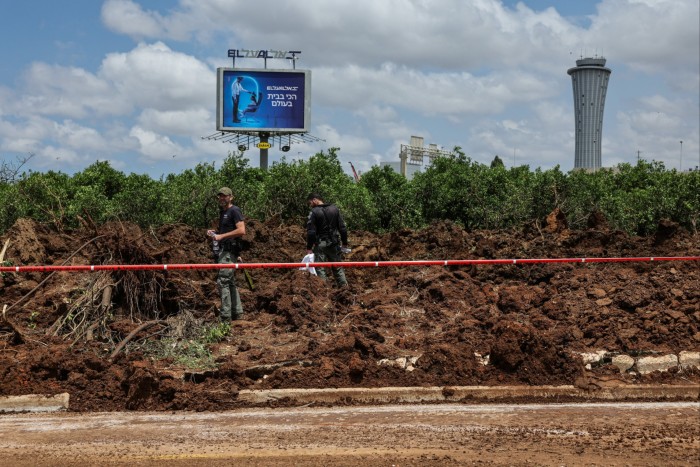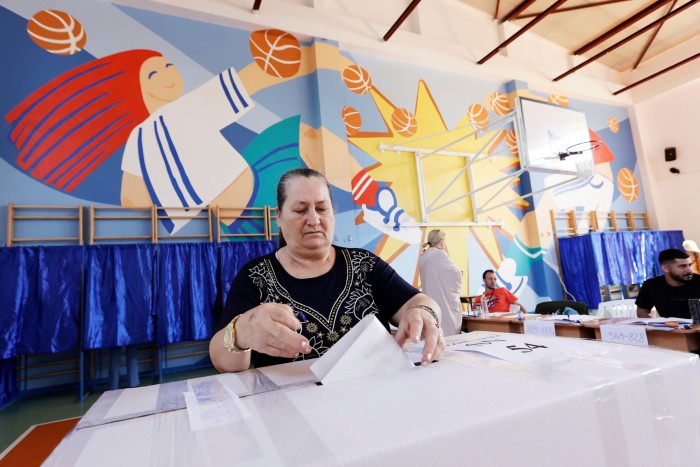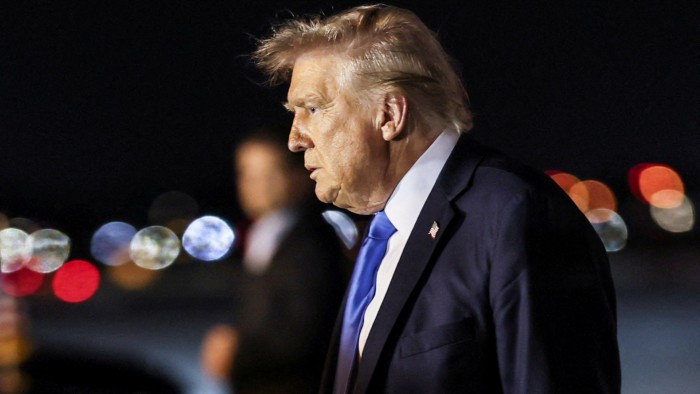Israel calls up reservists for wider Gaza offensive

Unlock the Editor’s Digest for free
Roula Khalaf, Editor of the FT, selects her favourite stories in this weekly newsletter.
The Israeli army has called up thousands of reservists as it prepares to ratchet up its offensive in Gaza, the military said on Sunday.
The intensification comes at a time of surging tensions across the Middle East, with Israeli forces carrying out air strikes in Syria and Lebanon in recent days, and a missile fired from Yemen landing near Israel’s Ben Gurion international airport on Sunday.
The Israeli military said that the “few thousand” reservists who had already received call-ups were in the process of being deployed, but declined to give precise details of their numbers.
“[They are being called up] because we are going deeper into Gaza,” it said.
Prime Minister Benjamin Netanyahu was due to discuss both the next steps in Israel’s war with Hamas in Gaza, and its retaliation for the strike on the airport — for which Houthi rebels in Yemen claimed responsibility — with officials later on Sunday.
The Houthis began firing missiles at Israel after it invaded Gaza in response to Hamas’s October 7 2023 attack. While most have been intercepted, some have slipped through Israel’s air defence system.
Israel’s defence minister Israel Katz promised a harsh response for the attack, which injured four people, disrupted flights and left a large crater near a car park within the airport’s perimeter.
Footage posted on social media showed a huge plume of smoke and dust rising from the site, as well as access roads strewn with debris hurled into the air by the impact.
“Whoever harms us, we will harm seven times over,” Katz said in a brief statement.
The missile attack came as Israel prepared for the latest escalation of its offensive in Gaza since it broke a fragile ceasefire with Hamas in the Palestinian enclave two months ago.
Since then, Israel has cut off supplies of food, fuel, medicine and aid to Gaza’s 2.1mn population, exacerbating extreme hunger and malnourishment in the territory, and driving prices for fruit and vegetables to exorbitant levels in the few places where they can still be obtained.
Israeli forces have also seized swaths of land along Gaza’s borders, as well as in other areas, such as around the southern town of Rafah, and in the so-called Netzarim Corridor which separates northern and southern Gaza.
However, far-right ministers on whom Netanyahu’s coalition depends for its majority have been demanding that the government order a far bigger operation in the shattered territory, where Hamas is still holding 59 Israeli hostages — fewer than half of whom are still thought to be alive.
Bezalel Smotrich, Israel’s ultranationalist finance minister, said last month that the government would have “no right to exist” if it did not defeat Hamas, occupy Gaza, install a “temporary military government”, free the hostages and implement US President Donald Trump’s proposal to displace Gaza’s entire population — an idea widely regarded as ethnic cleansing.
However, a majority of Israelis want a deal to end the war, and last month several hundred reservists signed petitions calling for the government to do a deal with Hamas to end the fighting and free the hostages.
Netanyahu said last week that while bringing home the hostages was a “very important goal” in the war, the “ultimate goal is the victory over our enemies”.
Israel’s offensive in Gaza has killed more than 52,500 people, according to Palestinian officials. During Hamas’s October 7 attack, militants killed 1,200 people, according to Israeli officials, and took 250 hostage.








